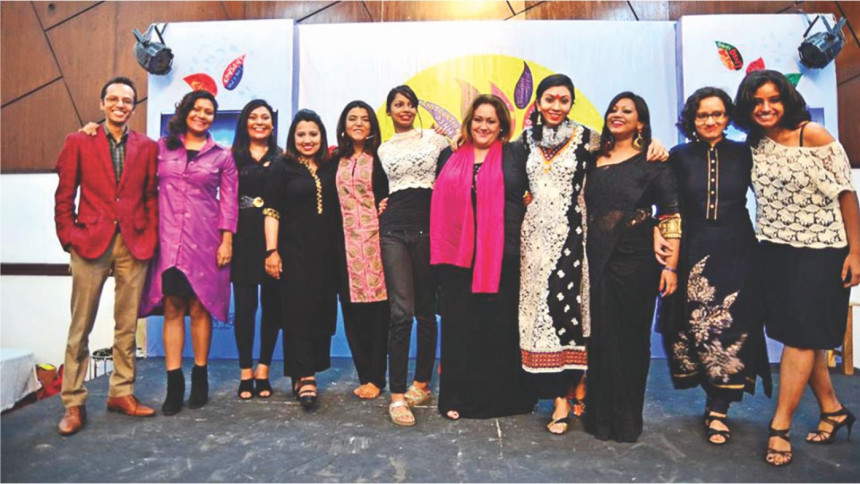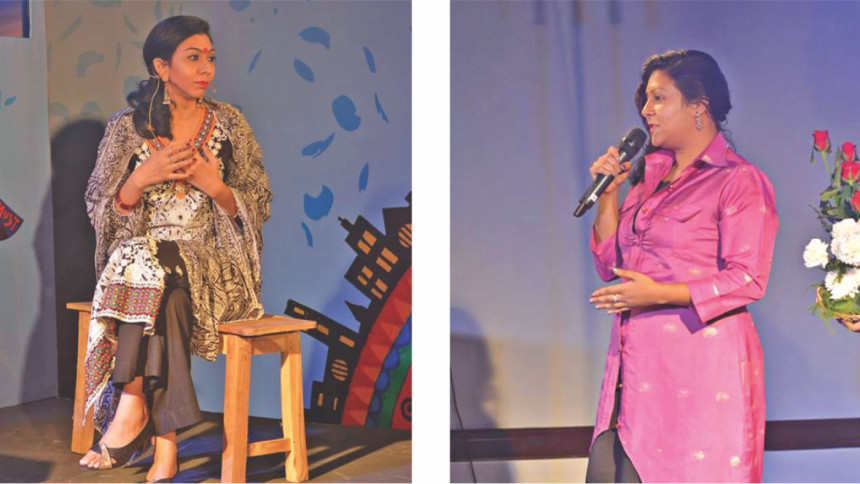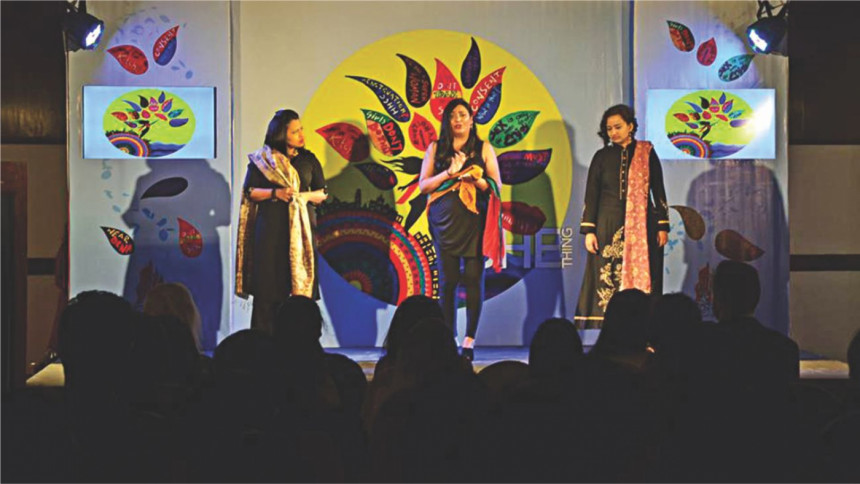Aiming for Visibility

Photos: courtesy
The first time I saw The Vagina Monologues being performed, was at a women's day event in Yorkshire in 2009. Some phenomenal women spoke of their vaginas-angry and emotional, and they blew my mind. I thought, how would people react in Bangladesh if a bunch of women took the stage, and spoke about their bodies and womanhood so liberally yet rightfully? I was one of the first to get my tickets to the show in 2013, and turns out it was being performed in Dhaka since 2010. I knew one thing as soon as I saw the show - I had to get involved!
In May 2015, It's a SHE Thing, a local collection of stories of everyday women from Dhaka was launched for the first time, inspired by Eve Ensler's The Vagina Monologues. This year, the second production of the show was staged on 19 and 20 August despite security concerns. The turn out proved once again that a cause worth fighting for does not go unnoticed. This year, the play was staged under the banner of Bonhishikha, an organization that believes that gender roles constrain the potential of individuals by holding them back, and that an ideal world is one where who you look like, how you are treated and what role you play is not determined by the sex organ that you are born with.

Topics covered in the show were as diverse as emotional abuse, to the many coveted roles of the orna, to ideas around consent and what it means to be a “superwoman”. Funds raised through ticket sales and donations will go out to Leaping Boundaries, an organisation that works with a vision to break social barriers where every child is treated equally. The project is girl‐focused aimed at increasing visibility of madrasah students on mainstream national platforms where they are traditionally underrepresented.
According to Tasaffy Hossain, founder of Bonhishikha, “It's a SHE Thing highlights stories about women and issues they face in every sphere of life, every single day. It takes a satirical stand on society so as to bring about changes in the nuances, and simply indulges you to think about the kind of role they may play in the lives of women and yourself”. Mayeesha Azhar, coordinator, Bonhishikha said, “It's a way for me to begin expressing, talking about the frustrations I feel around gender restrictions in my life, instead of internalising it and letting it fester into bitterness.”
Nazia Jabeen, who had seen this stage show for the first time this year said, “Ofcourse some of the topics covered were hard to listen to. You must understand we have not grown up talking and hearing of these things. My mom also always told me to speak softly and sit with my legs together. I used to laugh really loudly when I was young, but my mom said that girls shouldn't. But ultimately, as you have rightly pointed out through your show, all women ask for, and also deserve is equality. This, for me, is the main message of the show.”

For me, the highlight of the show was when an audience member got up and spoke about her experience of being abused and when a father stood up to talk about his daughter being called names simply for not wearing the hijab. I felt that I had served a purpose-by helping to provide a safe space for people to talk about how they had been subjugated, denied their rights and judged, at some point in their lives, and this is simply a start to a wonderful initiative.
So the next logical question definitely would be- after two significant productions of women's stories, what's next? And the most reasonable answer to that ofcourse will be to talk about men and masculinity! In November, Bonhishikha will bring out its first ever production of tales of males: stereotypes and issues that they face through their lives and how it is time to be challenging them. Auditions will be announced soon on our Facebook page, so stay tuned!
The writer works as a Coordinator in Bonhishikha.


 For all latest news, follow The Daily Star's Google News channel.
For all latest news, follow The Daily Star's Google News channel. 



Comments